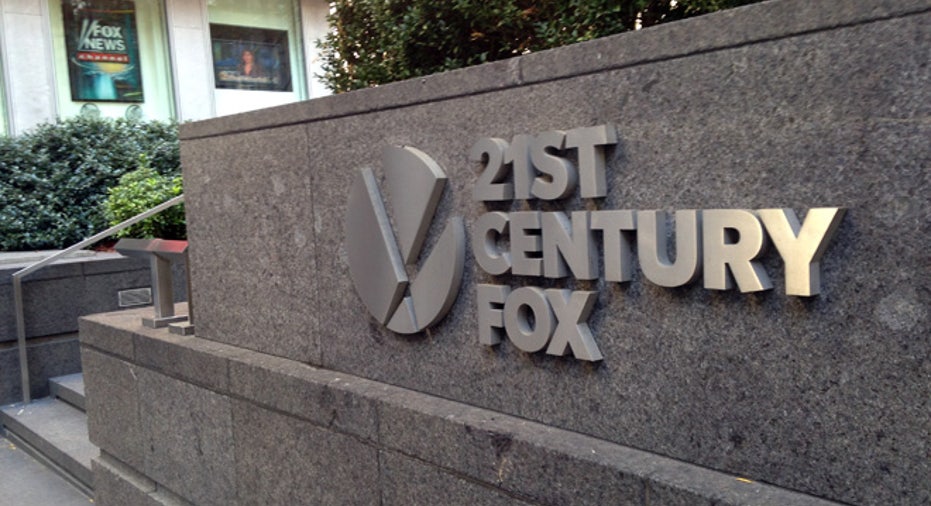21st Century Fox Quarterly Profit Beats Wall Street Projections

Editor’s note: 21st Century Fox is the parent company of the FOX Business Network
Quarterly revenue dropped sharply at 21st Century Fox during the first three months of 2015, as the company faced tough comparisons with a fiscal period that included the Super Bowl and the sale of its television businesses in Italy and Germany.
The results were humdrum, sending the company's stock down slightly in after-hours trading. Hits like "Empire" and the final season of "Glee" generated excitement among viewers, but came with higher programming costs that cut into profits at Fox's broadcast division. The company always faced an uphill battle given that unlike last year, it did not broadcast the most recent Super Bowl, missing out on the advertising sales that accompany the game.
Revenue for the period ending in March fell 17% to $6.8 billion, down from $8.2 billion in the prior-year quarter. Excluding the sales of Sky Italia and Sky Deutschland AG to BSkyB, the revenue picture grows brighter, increasing $84 million or 1% over the $6.8 billion of adjusted revenue.
Profits at the media conglomerate remained essentially flat at 46 cents a share, while net income dropped 2.9% to roughly $1 billion from $1.1 billion.
Revenues were in line with Wall Street's projections, although profits exceeded expectations. Analysts polled by Thomson Reuters were predicting profits of 39 cents per share on revenue $6.9 billion.
Cable revenues increased 13.9% to $3.6 billion on higher affiliate fees, while filmed entertainment revenues rose 4.8% to $2.4 billion on the strength of hits such as "Kingsman: The Secret Service" and "Taken 3." Television revenues fell more steeply, dropping 22.1% to $1.2 billion, which Fox attributed to the loss of the Super Bowl, falling ratings and a 7% decline in ad sales.
The health of Fox's broadcast network bubbled up repeatedly during the company's earnings call with analysts on Wednesday, with Fox chief operating officer Chase Carey acknowledging that the network had struggled to find new hits to replace fading giants like "American Idol."
Calling the network both the "shining light" and the "pyramid" of Fox's other businesses, Carey told analysts and investors, "we need to continue to have the backbone to invest to drive that business to what it can be."
Carey acknowledged that digital forms of distribution are complicating the ways that older forms of media make money from advertising, but said he was confident that working more closely with Madison Avenue would enable Fox and others to find better ways to reach consumers.
"This is a time to prioritize long-term gains over short term pain," he said, adding at another point, "as the world evolves, we have to adjust to it."
(By Brent Lang)



















